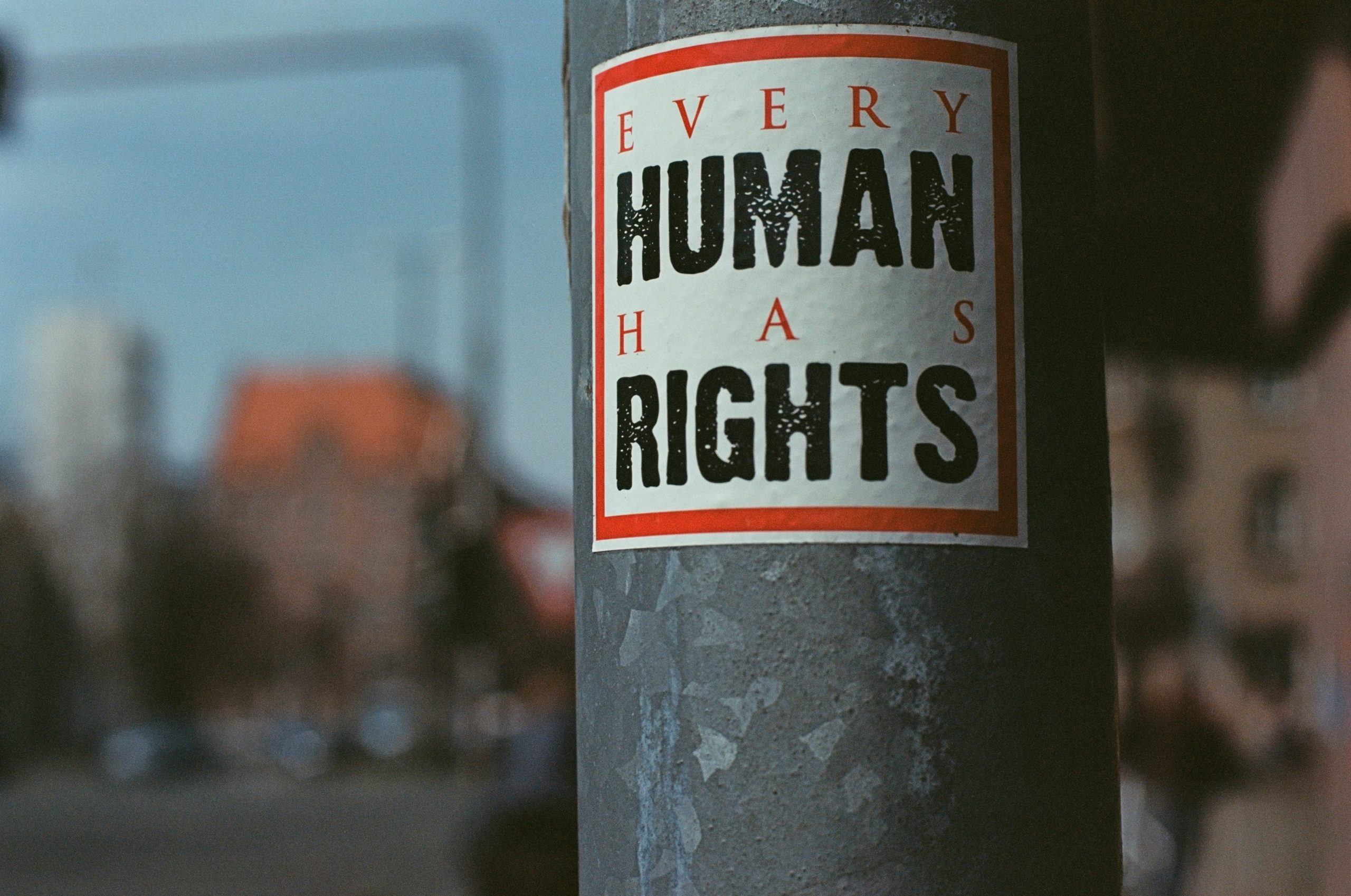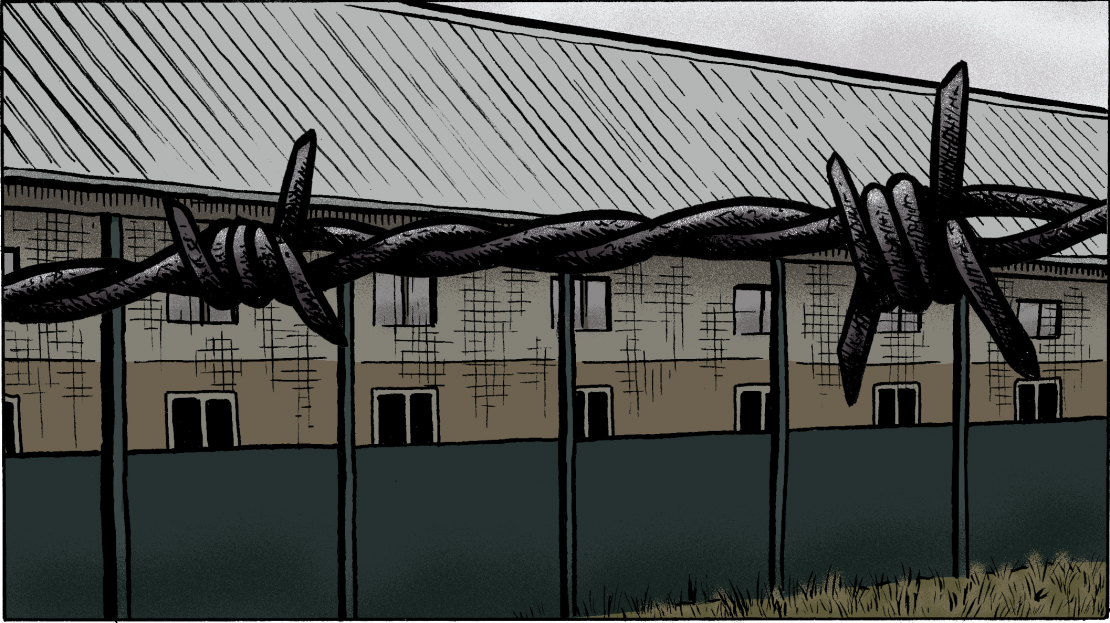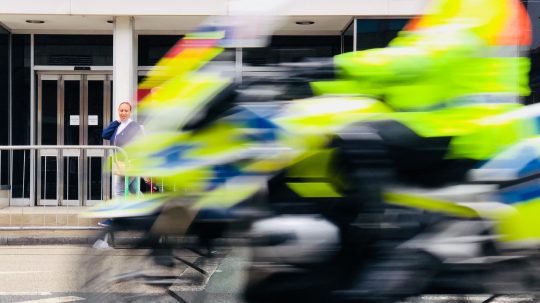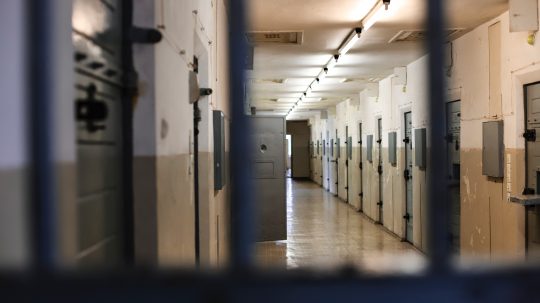People held in immigration detention have human rights – just like the rest of us. Under international law and the Human Rights Act 1998 (HRA), people have a right to liberty, a family life, an adequate standard of living and other aspects.
This week, the home secretary Suella Braverman came under fire after people held in Manston immigration processing centre in Kent were found to be living in “inhumane” conditions. Asylum seekers, including unaccompanied children, were held in the centre for weeks. The legal time limit for people to be detained in the short-stay centre is 24 hours.
After people’s claims are ‘processed’ in centres like Manston, they could then be held at one of the seven immigration removal centres (IRC) in the UK or detained under immigration powers in prison. We looked at how immigration detention can violate human rights.
Right to liberty and security
Everyone in the UK has the right to personal freedom under Article 5 of the HRA. This means a person must not be imprisoned or detained without good reason.
However, the UK is the only country in Europe with no time limit on how long someone can be held in immigration detention. In 2021, 13% of people held in detention were held for longer than 28 days. One person had been held in detention for almost four years.
Civil liberty groups argue that this breaches Article 5, as indefinite detention is not authorised by a judge and has “extremely limited” options for review. In 2019, the parliamentary Home Affairs Select Committee said that immigration detention was a “deprivation” of liberty, and should be used “only if there are no other options, as a last resort prior to removal”.
Freedom from torture, inhuman or degrading treatment
Indefinite immigration detention has also been seen as a breach of a right to freedom from inhuman or degrading treatment, under Article 3 of the HRA.
Many people who are detained in IRCs in the UK are survivors of trafficking and torture.
In 2019, the Equality and Human Rights Commission said: “Not having a time limit on immigration detention and continuing the detention of torture survivors and other individuals at increased risk of harm in detention could amount to torture or inhuman and degrading treatment.”
It called on the UK government to introduce a 28-day limit on immigration detention and to ensure that detention is used only as a “last resort”.
Last year, the Guardian reported that torture survivors were held by the Home Office in solitary confinement for indefinite periods. The charity Bail for Immigration Detainees found that the solitary confinement of an estimated 500 people in detention, who were sometimes locked in their cells for days at a time, could breach the UN’s standards which prohibit prolonged solitary confinement.
Right to a decent standard of living
Under the Universal Declaration of Human Rights 1948, everyone has the right to an adequate standard of living, including the provision of adequate medical care, food and water. This is reiterated in Article 11 of the International Covenant on Economic, Social and Cultural Rights.
The charity Detention Action has highlighted the inhumane conditions that many people are forced to live in while detained. In report from 2020, it said: “Wet, cold, unaccompanied children were found detained in totally unacceptable conditions, locked in rooms with adult strangers.”
Steven*, who oversees the Detention Action’s work with people with lived experience of detention, told EachOther that people needed decent living conditions.
“Some people just require decent accommodation, not a palace or something like that,” he said. “You just need somewhere where you have your right to privacy, somewhere you won’t have CCTV over your head, or phones confiscated, [where] you can just have a proper meal and you can have mental health support.”
The British Medical Association, the trade union and professional body for doctors and medical students in the UK, found failures in the standard of medical care in IRCs and advocated for a rights-based approach.
Though the Home Office has an ‘adults at risk’ policy for vulnerable people, such as pregnant women, Bail For Immigration Detainees said in 2018 that vulnerable adults were being “detained too often, and for too long”.
Right to not be discriminated against
Under the HRA, everyone has the right to protection from discrimination in respect of all the other rights and freedoms that the Act upholds. It enshrines the article 14 of the European Convention on Human Rights (ECHR), which says ‘unlawful discrimination’ is contrary the convention.
A judgment last year found that the treatment of people detained under immigration powers in prison was discriminatory compared with people detained in IRCs.
People held in IRCs should have access to the Detained Duty Advice Scheme (DDAS), which provides a free 30-minute appointment with a lawyer at the centre, funded by legal aid without reference to merits or financial eligibility. However, no equivalent scheme exists for people held in prisons for immigration reasons.
In the judgment of the case, the judge, Mr Justice Swift, concluded: “The failure to afford immigration detainees held in prisons access to publicly funded legal advice to an extent equivalent to that available to immigration detainees held in IRCs under the DDAS, is in breach of Convention rights.”
The government was required to provide better support in prison following a legal challenge which highlighted a lack of guidance for prison staff in July.
A judicial review claim brought by the Anti Trafficking and Labour Exploitation Unit (ATLEU) last month stated that the government had no “overarching written policy” to direct how prison staff should respond to and support victims and potential victims of modern slavery.
According to the ATLEU, the government admitted there was no structure in place to inform prison staff when the Home Office had identified prisoners as victims or potential victims of modern slavery.
ATLEU brought its judicial review claim on the grounds that these failings in the prison system “unjustifiably discriminate” against victims and potential victims of modern slavery detained under criminal powers, compared with other victims of modern slavery.
Right to private and family life
The right to respect for your private and family life is protected under Article 8 of the HRA. A person’s right might be violated if they are unable to correspond with their family or without being ‘unreasonably interfered with by the government’.
People detained have described how they are unable to get in contact with their families. One person held in prison under immigration powers said: “In this prison, I cannot get my phone numbers from reception. I’m locked away from the outside world and cannot contact friends and family to get help or representation. How do I contact my friends for help?”
Children from overseas are routinely separated from their parents through immigration detention. Hundreds of unaccompanied minors have been unlawfully detained in the UK while the Home Office has conducted age assessments. UN human rights experts have said that children should never be detained as it is contrary to the UN Convention on the Rights of the Child.
*Some names have been altered or withheld for their protection.





